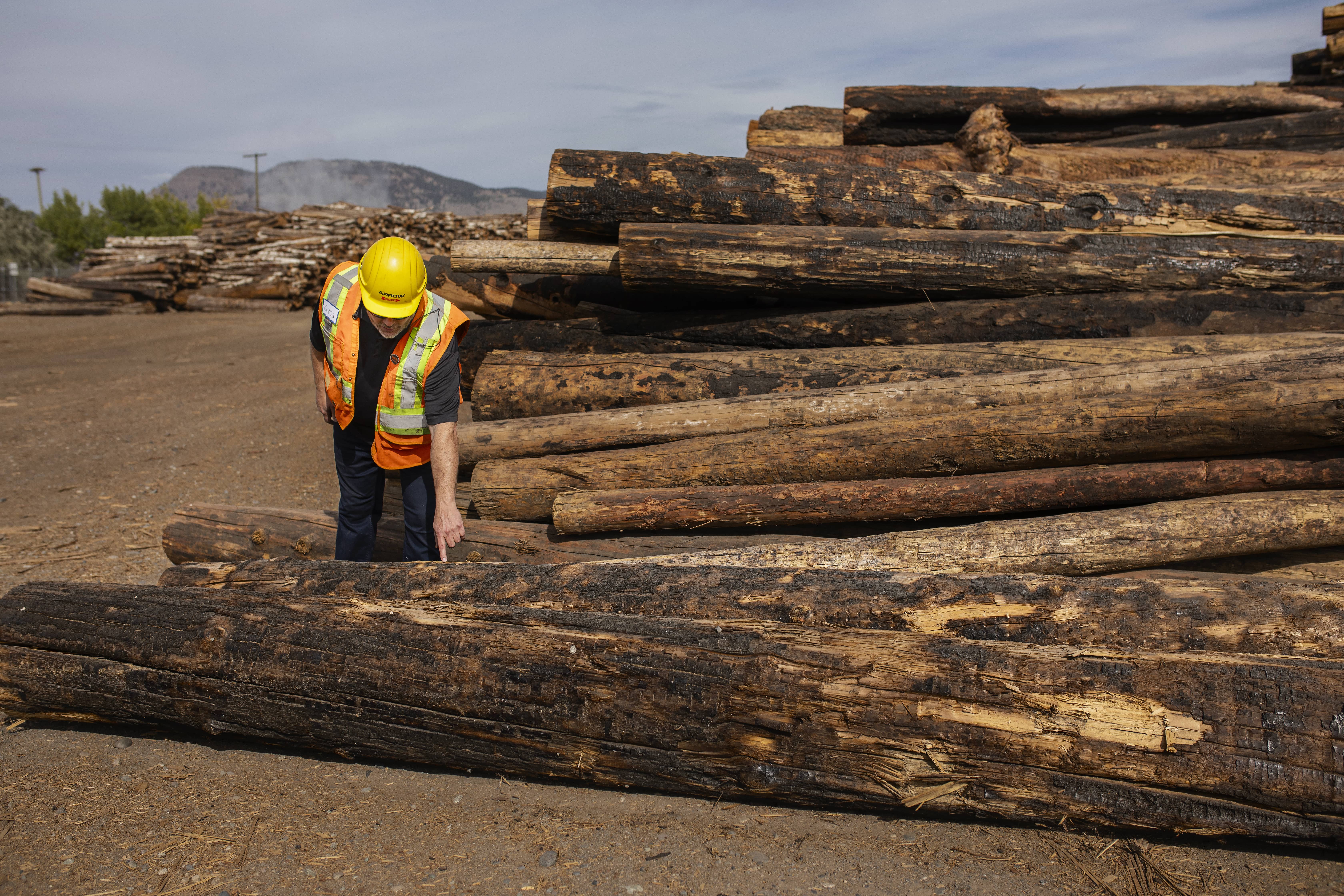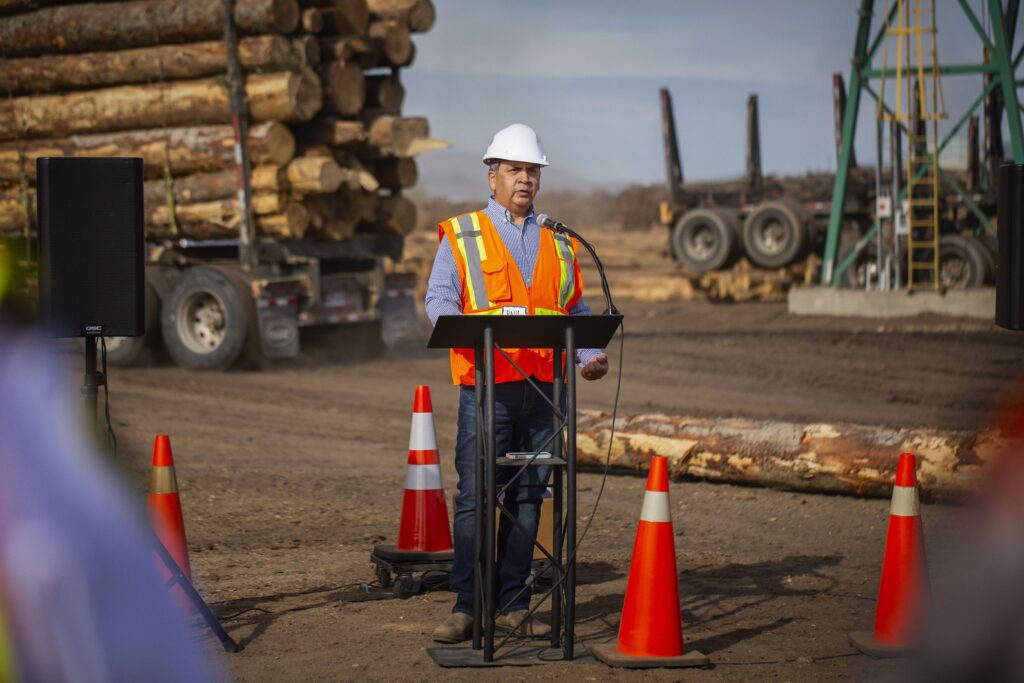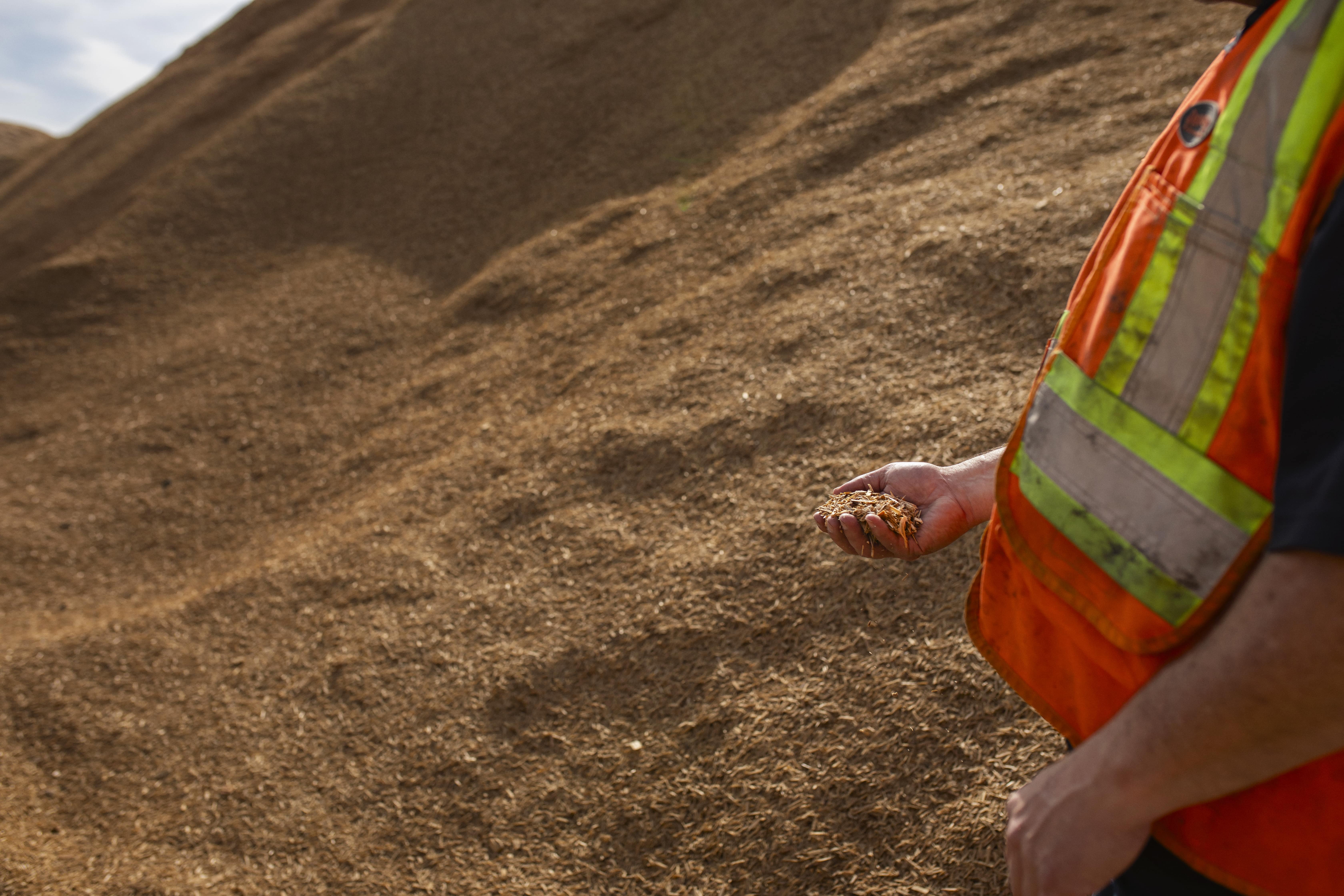Forestry Projects to Help Utilize Waste Wood or Mitigate Wildfire Risk
Kamloops, B.C. – At a press event at River City Fibre in Kamloops, the executive director of the Forest Enhancement Society of BC (FESBC), Steve Kozuki, announced 42 newly funded forest enhancement projects. These projects throughout the province of B.C. will either assist with the delivery of uneconomic forest fibre to pulp and pellet mills or green energy facilities or will help communities reduce their wildfire risk. Among these projects, seven projects are located in the Thompson Okanagan region.
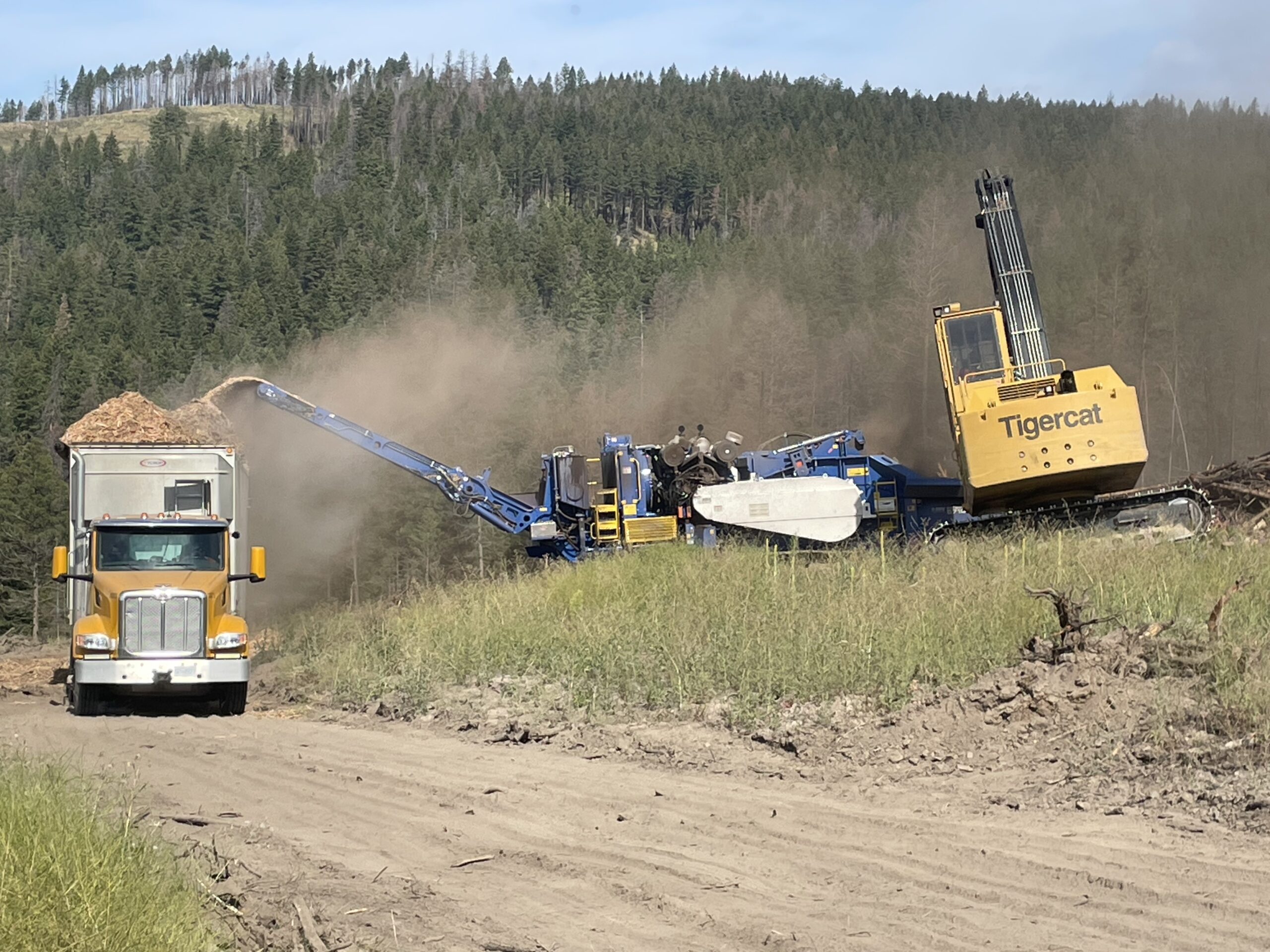
“The funding provided by the Forest Enhancement Society of BC is a testament to the Government of British Columbia’s drive to foster environmental sustainability and community wildfire risk reduction. Their support of these transformative projects demonstrates their commitment to helping communities reduce their risk of catastrophic wildfire events and transforming waste wood into green energy and sustainable products. They are taking action on climate change while at the same time promoting job growth and community resiliency throughout our province,” said Kozuki.
These newly funded projects come as a result of the $50 million given to FESBC earlier this year by the Ministry of Forests to boost fibre supply by utilizing uneconomic fibre and reduce wildfire risk while also supporting workers and communities.
“Our forests have endured some very difficult years of late. Devastating wildfires, pine beetle epidemics and the effects of climate change have stressed the environment more than ever before, with direct impacts felt by rural and First Nations communities,” said Bruce Ralston, Minister of Forests. “By using burned or damaged wood, projects around B.C. are providing the forest industry with fibre and are actively increasing our resilience to future wildfires.”
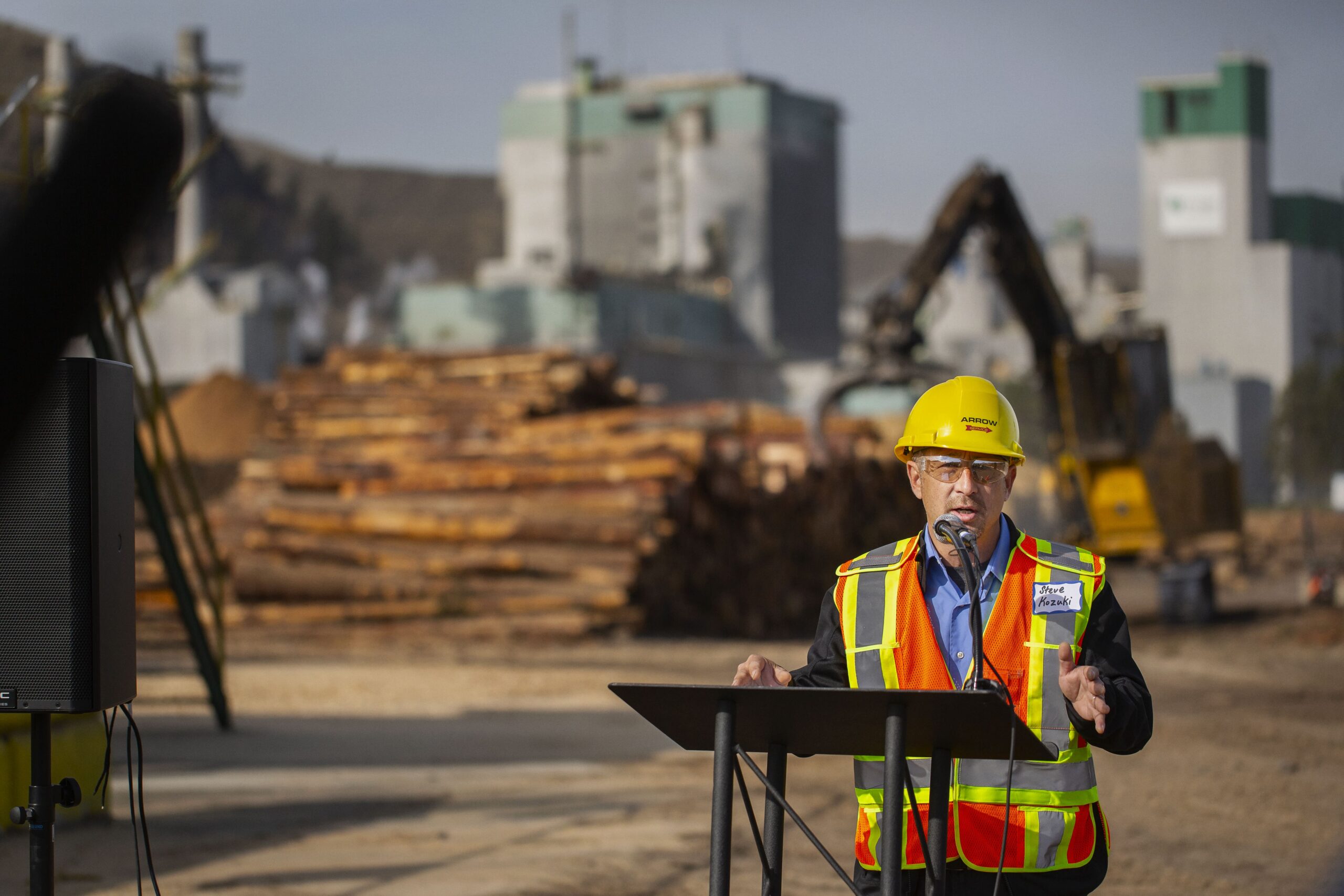
Photo Credit: Tiffany Christianson Photography.
The seven projects in the Thompson Okanagan region are:
- Simpcw Resources Group Pulp Log Utilization: $2,299,175 in FESBC funding to transport low value logs located outside of the current economic range of the River City Fibre Ltd. chipping facility in Kamloops.
- St’at’imc Tribal Holdings Burn Permit project: $196,350 in FESBC funding to transport low value fibre from burned forest stands to the River City Fibre facility in Kamloops for use in power production.
- 2023 Ikwadli Creek 3 Fibre Utilization project: $47,595 in FESBC funding to transport low value fibre from the Community Forest owned by the Lower Similkameen Indian Band to Interior pulp mills.
- Southern Interior Biomass Incremental Haul costs project: $1,075,186 in FESBC funding for Arrow to transport low value sawlogs to Kamloops for use in energy and pulp.
- CJ4-047 Burn Permit project: $110,620 in FESBC funding to transport low value fibre from burned forest stands to the River City Fibre facility in Kamloops for use in power production.
- Southern Interior Grinding Fibre Utilization Project: $1,859,069 in FESBC funding to ground and ship waste piles located throughout the Southern Interior to the River City Fibre facility in Kamloops then used for power production at the Kruger Pulp Mill.
- Stuwix Resources JV-Bush Grind Program: $821,668 in FESBC funding to grind waste material in slash piles to shipment to the energy facility in Merritt.
Photo credits: Tiffany Christianson Photography.
These initiatives will utilize waste wood to produce green energy and sustainable products, reducing our reliance on fossil fuels and plastics that have long dominated our everyday lives. Other projects currently funded by FESBC will reduce wildfire risks for communities.
“With challenges such as insect epidemics, devastating wildfires, and the need to conserve old growth and wildlife habitat, it is crucial to find innovative solutions,” said Kozuki. “The declining timber supply has amplified the importance of utilizing leftover forest fibre that would have otherwise gone to waste.”
Of the 42 new projects funded throughout the province, 24 projects have direct First Nations involvement, while eight have some First Nations involvement.
ADDITIONAL QUOTES:
Simpcw Resources Group Pulp Log Utilization project
Kevin Gayfer, RPF, Regional Manager, Arrow: “The funding from FESBC plays a pivotal role in supporting the utilization of forest fibre that would otherwise go to waste. This investment not only drives economic growth but also contributes to environmental sustainability through a net reduction of carbon emissions in the form of products derived from Kruger.
The collaboration between Kruger, Simpcw Resources Group, and Arrow exemplifies how partnerships can transform industries. Often funding is required to bridge the financial gap of learning new practices until efficiencies can be developed. FESBC and the Ministry of Forests have been excellent to work with on getting these projects off the ground.”
Thomas Hoffman, fibre manager, Kruger Pulp Mill: “Kruger is very pleased to see the Government of BC support the Forest Enhancement Society of BC. The funding from FESBC allows us to work with First Nations Communities and businesses to access and utilize fire-affected fibre to produce value-added products that are used locally and worldwide.”
Glen Foss, Forestry Manager, Simpcw Resources Group: “Beyond utilizing fibre, our project’s true impact lies in reducing the wildfire risk. We’re not just cleaning up post-harvest fuel; we’re better safeguarding our communities and natural landscapes.”
Southern Interior Biomass Incremental Haul Costs project
Greg Kilba, Arrow: “We are excited about how FESBC has allowed us to utilize biomass logs that historically went up in smoke. FESBC has provided the funding that has allowed us to experiment with logs that had never been used for creating pulp in the past. Using fire-affected logs for pulp production came about from previous FESBC projects. In cooperation with FESBC, our hope is to continue to find innovative ways to be able to utilize fibre that historically had very little to no value. Through this initiative we have been able to bring in logs from further away that can be used for hog and pulp production. Together, we are making a difference, creating jobs, and making positive changes!”
Stuwix Resources JV-Bush Grind Program
Ben Klassen, CEO, Valley Carriers Ltd.: “This funding from FESBC allows us to further reach to ensure the maximum utilization of this important resource in our local community. Partnering with Stuwix, we are able to provide five to seven additional local jobs and fulfill the value of maximizing their resource through non-traditional markets. Further, this will help us transform logging residuals into value-added products utilized by the agricultural, pulp, and clean energy industries in B.C.”
FESBC would like to gratefully acknowledge the financial support of the Province of British Columbia through the Ministry of Forests.

